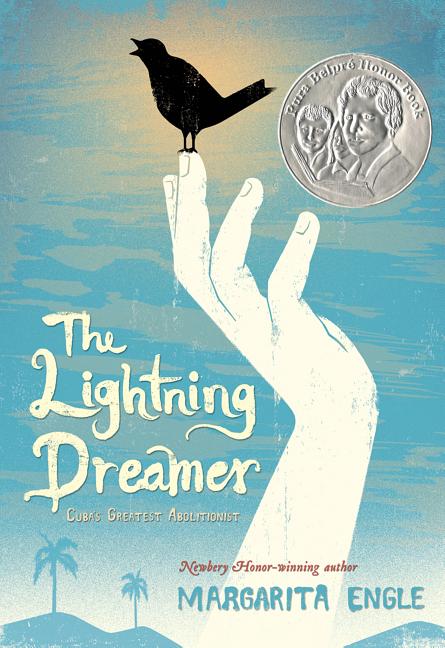Book Description
for The Lightning Dreamer by Margarita Engle
From Cooperative Children's Book Center (CCBC)
A verse novel introduces the inspiring Gertrudis Gomez de Avellaneda, known among family and friends as Tula, who grew up in early nineteenth-century Cuba with the heart and soul of an abolitionist and feminist. At thirteen, Tula is a voracious reader and writer but does both somewhat secretly in her wealthy family. Inspired by the work of Cuban poet Jose Maria Heredia, who lives in exile in the United States because of his radical stance against slavery in Cuba, she begins writing plays with antislavery messages. Tula's unsympathetic, widowed mother does not understand her smart, spirited daughter and promises her, at fourteen, to an older man in marriage. A family tragedy releases Tula from the marriage and she later falls in love with Sab, a former slave, but her love is unrequited-Sab is in love with his former owner's daughter, who is, in turn, betrothed to a wealthy man. Still, Sab becomes Tula's inspiration. "Can a free person / really understand one whose dreams / must fly up and soar / high above the depths of slavery? ... Is my imagination enough / or do I need to add the ways / in which I myself / have felt enslaved?" In an author's note, Margarita Engle explains that Tula's novel Sab, which she wrote at age twenty-two, argues against the slavery of Africans and indigenous peoples, and the slavery of women being forced into marriages they do not want. Back matter includes more information about Tula and Heredia, as well as references. (Age 13 and older)
CCBC Choices 2014. © Cooperative Children's Book Center, Univ. of Wisconsin - Madison, 2014. Used with permission.


